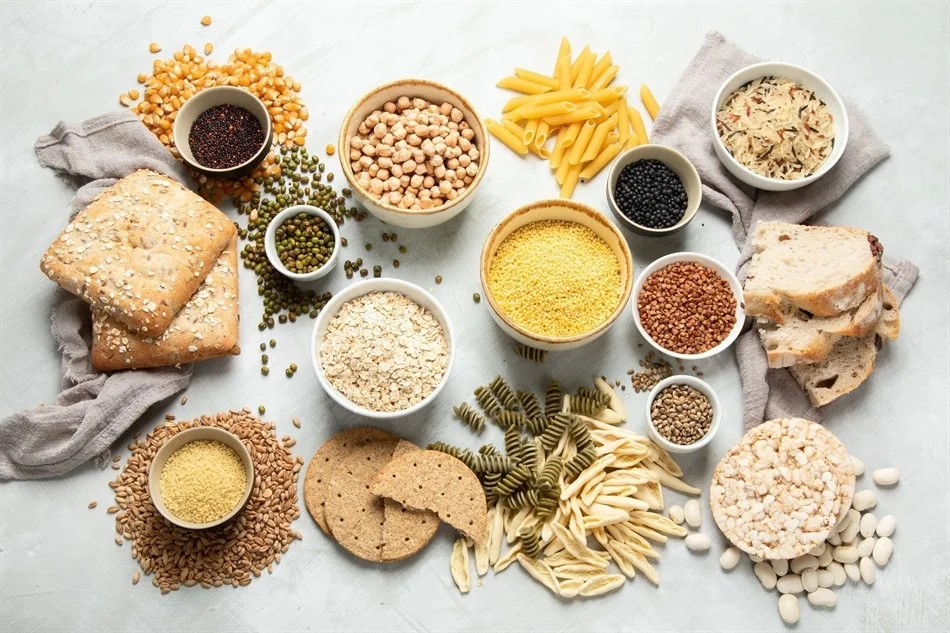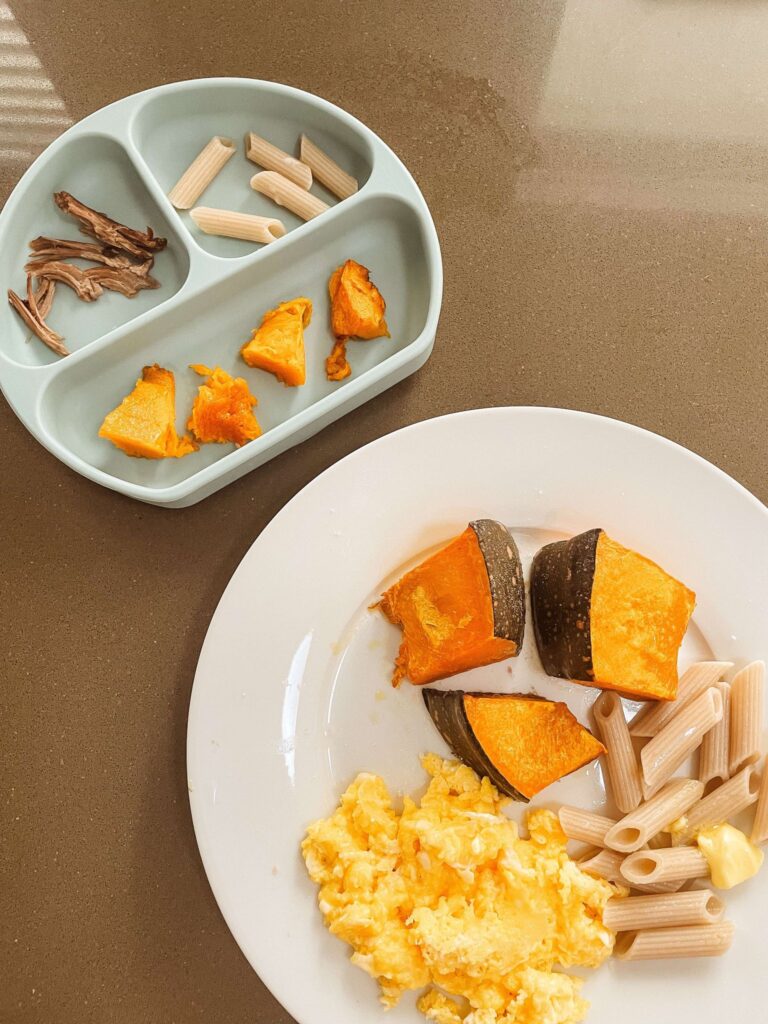There are many foods that parents feed their baby in the first year that their baby should not be introduced to until after one or much later. Here I want to shed light on some of those foods. Here are foods to avoid feeding your baby in the first year.

With my first two babies, I fed them mostly whole foods in their first year of life. However, there was a time when I was given some baby rice cereal from a friend when I had my second daughter. I gave it to my daughter without much thought. But I now know that rice cereal is one of the worst foods you can offer your baby in their first year.
It was not until I had my third baby that I began consciously making more of an effort with what to offer him and what not to offer him. I wanted to expand his taste palate, but with whole foods and nothing more.
With our fast-paced society and foods becoming more manufactured and processed than ever, it is my mission to ensure my family is eating as close to the way we were designed to eat.
There are many children who grow up to be overweight because of how they were raised to eat. Yes, genetics play a part, but so does a family’s diet.
As parents, it is our job to ensure our children have the best start nutritionally and it truly does begin in their first year of life.
What I will cover in this post
- What foods to avoid feeding your baby in the first year
- What foods to introduce to your baby in the first year
- Our own relationship with food as parents

Foods to avoid feeding your baby in the first year
We generally start giving our baby the best foods at first. But as they get older, we can get a little slack and start offering them more processed foods or worst alternatives.
There are definitely healthy convenient foods, like a plain yoghurt pouch, for on the go. But many convenient foods are simply not healthy for a baby under one.
Let’s start with my favourite, baby rice cereal.
- Baby rice cereal
Rice cereal is stripped of its nutrients and fibre. It is a highly glycemic food (spikes blood sugar levels) and is very bland tasting. These are just some of the disadvantages.
Babies need fat, calcium, iron, vitamin D and choline, to name a few nutrients. Apart from the fact that rice cereal is often iron-fortified (meaning it contains a synthetic source of iron, not the real deal), there are no beneficial nutrients in it.
I will share some healthier alternatives to rice cereal further down.
2. Processed/refined grains
Like rice cereal listed above, processed grains should be avoided at all costs. They are stripped of their nutrients, highly glycemic and are simply not healthy for a baby’s developing metabolism and gut health. These foods include bread, rusks, cereal, white flours and pasta.
3. Juice
The pasteurised kind especially. Pasteurisation kills enzymes and vitamins and spikes blood sugar. Fresh vegetable juice or small sips of freshly squeezed fruit juice is okay.
4. Refined seed oils
It truly frustrates me how often you will find seed oils in packaged foods. Even the healthier organic brands have them! These oils, such as canola, sunflower, vegetable, corn, soybean, safflower and grapeseed oils, are extracted with chemicals and/or at damaging high heats, are bleached and deodorised.
If you cook with any of the above oils, ditch them for extra virgin olive oil or avocado oil. And try and avoid giving your baby foods with these oils in them.
5. Sugar
Refined sugar, such as castor sugar, cane sugar, icing sugar etc. are often in high doses in processed foods. It is also important to avoid baking with these sugars in the first year of your baby’s life.
I will list some ways you can naturally sweeten baked goods below.
6. Honey
Honey is the only food that has been linked to infant botulism, which is a rare but serious food poisoning in babies up to age one. Babies after the age of one can tolerate it better.
7. Tough skins and stringy foods
Depending on baby’s age and confidence with eating, it is important to avoid foods that cause gagging or possibly choking. These foods are often tough skinned, like raw apple, cucumber or pears, and stringy, like green beans and parsnips.
I suggest offering stewed apples without the skin to younger babies and baked parsnips, or finely chopped green beans to smaller babies.
8. Cow’s milk
Cow’s milk should be avoided in the first year of a baby’s life, because of the particular proteins in the milk. However, other dairy can be introduced from about 10 months old, like plain yoghurt.
9. Whole nuts and seeds
While nuts should not be introduced until a baby is at least 7 months old, it should safely be administered in the form of a nut butter or blended well. Small seeds like chia or flax seeds can be introduced by mixing them into a smoothie or yoghurt. However, whole nuts can be a choking hazard, so it is important to avoid until a baby is older and confident to chew well.
10. Heavily sprayed commercial produce
Commercial produce is often sprayed with chemicals like pesticides. These chemicals can be harmful to anyone, especially a baby.
If you cannot source organic, then sticking to the Clean 15 produce is best.
Foods to introduce to your baby in the first year
Here I will list some healthy alternatives to the above foods to avoid that you can offer your baby in the first year.
Side note: I’ve covered this in more detail in my post First foods to offer your baby, so make sure to check that out.
- Quinoa/steel cut oat porridge
Instead of rice cereal, offering your baby quinoa porridge or steel cut oat porridge (after 10 months, due to the gluten), is best. You can mix it in with some coconut milk or plain water and some fruit.
2. Natural sweeteners
Natural sweeteners instead of refined sugars to offer your baby are agave syrup, monk fruit sweetener, stevia, coconut sugar or brown rice syrup. I would stay clear from sweeteners altogether in the first year. However, these are definitely better alternatives to refined sugars.
3. Healthy fats
Fats are great in stabilising blood sugar and leaving your baby feeling fuller for longer. Fats like avocado, nut butter, coconut oil or extra virgin olive oil are healthy fats to introduce.
4. Fresh fruit and vegetables
A wide range of fruit and vegetables should be offered to a baby in their first year. There are so many textures and flavours to choose from, so don’t be shy in offering all different kinds of produce.
5. Meat
Soft meats offered in safe ways are an amazing source of protein, fat and iron for your baby. Feed them lots of it, like slow cooked lamb or beef, roast chicken or duck and salmon! They will love it.

Our own relationship with food as parents
It is important to reflect on your own relationship with food.
Do you eat to nourish? Or do you eat just to fill your belly?
Do you eat mindfully? Or do you eat rushed?
Do you eat around the table with loved ones? Or do you eat separately?
These questions are important to ask because your baby will be observing what you eat and how you eat.
For our family, we prioritise meal times together as a family. Our children look forward to eating dinner together at the table. We’ve had so many beautiful memories at the dinner table together and it makes for a positive eating experience.
It seems over the top, but reflecting on how we view food truly does impact the way our children will see it and it starts as early as their first year of life.
I encourage you to make eating a memorable experience for them.
More on the blog
20 foods to support your baby’s gut health
Leave a Reply